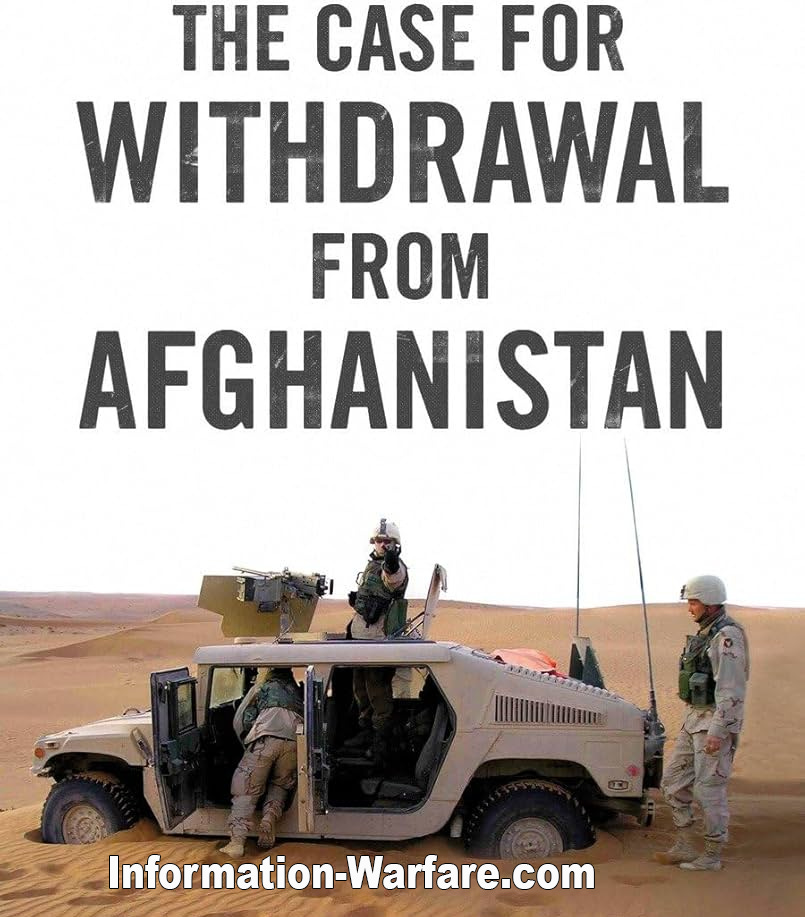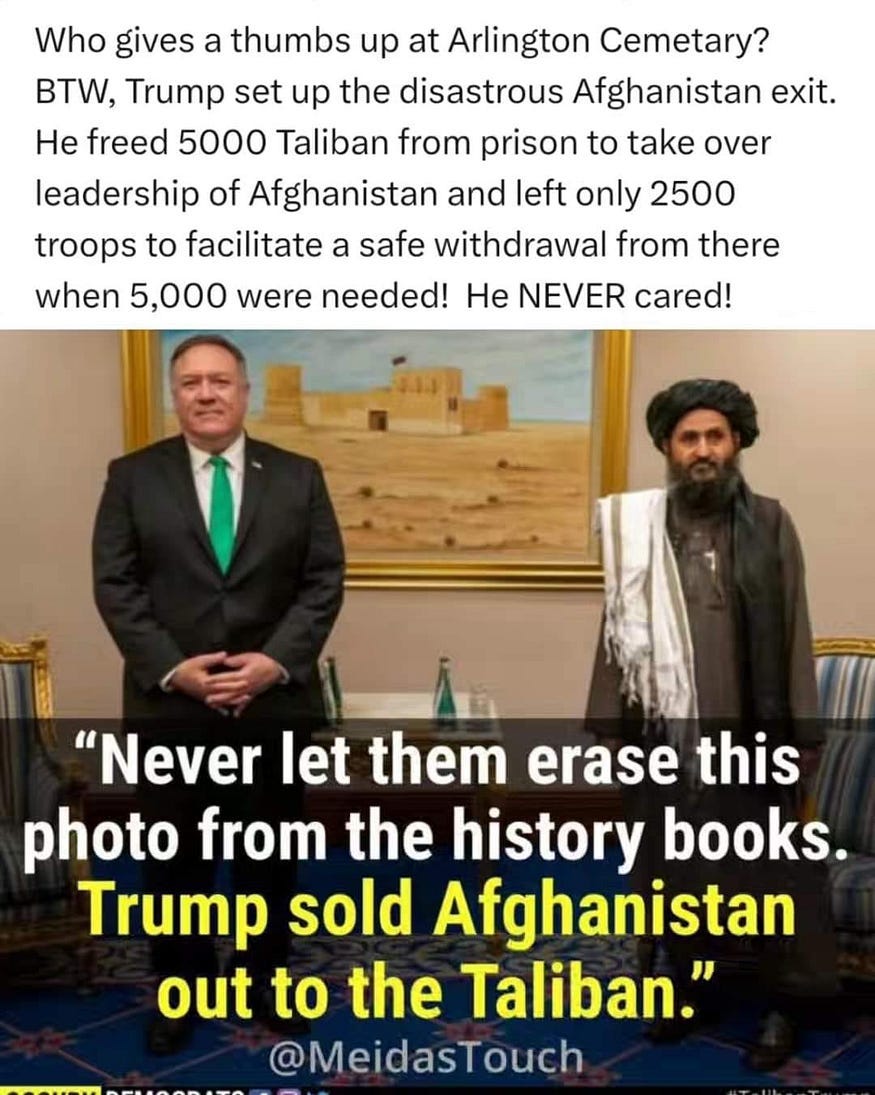How the Doha Agreement Set the Stage for Failure in Afghanistan
Trump’s Deal with the Taliban Left Biden With Limited Options as Afghanistan Collapsed
Introduction
The chaotic and tragic evacuation of Afghanistan in August 2021 marked the end of America’s longest war, but the seeds of its failure were planted much earlier. The Biden administration inherited an agreement negotiated by the Trump administration that set the stage for a rapid Taliban takeover. By negotiating directly with the Taliban instead of involving the Afghan government, the Doha Agreement effectively undermined the fragile democratic institutions in Afghanistan and paved the way for the collapse we witnessed. President Joe Biden, caught between honoring the deal and the risks of extending U.S. military presence, did the best he could with a situation that was already on a dangerous path.
A critical flaw in the Doha Agreement was that it largely excluded the Afghan government led by President Ashraf Ghani from meaningful participation in the negotiations. The Taliban saw the Afghan government as a puppet regime, and the U.S. conceded to their demand not to negotiate with them directly.
Trump’s Doha Agreement: Sidestepping the Afghan Government
In February 2020, the Trump administration signed a deal with the Taliban in Doha, Qatar, which set a timeline for the withdrawal of U.S. troops from Afghanistan. The agreement outlined several key conditions:
U.S. Withdrawal Timeline: The United States committed to withdrawing all military forces from Afghanistan by May 1, 2021, provided the Taliban upheld certain commitments.
Counterterrorism Assurances: The Taliban agreed not to allow any terrorist groups, including al-Qaeda, to operate on Afghan soil, and they pledged to negotiate a peace deal with the Afghan government.
Prisoner Exchange: The Afghan government was to release up to 5,000 Taliban prisoners, while the Taliban would release 1,000 prisoners held by them. This exchange was meant to build trust but ended up strengthening the Taliban.
However, a critical flaw in the Doha Agreement was that it largely excluded the Afghan government led by President Ashraf Ghani from meaningful participation in the negotiations. The Taliban saw the Afghan government as a puppet regime, and the U.S. conceded to their demand not to negotiate with them directly. This decision significantly weakened the legitimacy and bargaining power of the Afghan government and military, which played a vital role in the rapid collapse of the Afghan state once U.S. forces began to withdraw.
Undermining Afghan Democracy and Security
By negotiating directly with the Taliban, the Trump administration sent a message that the Afghan government was not an equal stakeholder in the future of Afghanistan. This approach not only sidelined the Afghan government but also severely undermined its authority. The release of thousands of Taliban fighters as part of the prisoner exchange further weakened Afghan security forces and strengthened the Taliban’s military capabilities.
As the U.S. began withdrawing troops, the Taliban, emboldened by the Doha Agreement, launched an aggressive campaign to capture territory across Afghanistan. Without robust U.S. military support and with waning confidence among Afghan security forces, the Afghan government quickly began to lose control. The Taliban’s swift advance created a domino effect, leading to the rapid fall of major cities and, ultimately, Kabul itself.
Biden’s Dilemma: Inheriting a Flawed Agreement
When President Joe Biden took office in January 2021, he inherited the Doha Agreement and faced a difficult choice. On one hand, he could have broken the deal and extended U.S. military presence in Afghanistan, risking further entanglement in a war that had already lasted two decades. On the other hand, he could proceed with the withdrawal as planned, knowing the risks associated with the vacuum it would create.
Biden chose to honor the agreement but extended the withdrawal deadline to August 31, 2021. By this point, the Taliban had already gained significant ground. The Afghan government and military, demoralized and poorly coordinated, were in no position to resist the Taliban’s final push toward Kabul. The rapid collapse caught much of the world by surprise, but the conditions for this outcome were set long before Biden took office.
The Chaotic Evacuation: A Consequence of Doha’s Legacy
As the Taliban entered Kabul, the situation quickly descended into chaos. The U.S. and allied forces launched a massive evacuation effort from Hamid Karzai International Airport, desperately trying to get American citizens, Afghan allies, and vulnerable Afghans out of the country. The chaotic scenes, including Afghans clinging to departing aircraft and the tragic bombing at the airport that killed 13 U.S. service members and scores of Afghans, became a defining image of the withdrawal.
Critics of the Biden administration argue that the evacuation could have been handled better. However, it’s important to recognize that the entire evacuation process was a consequence of the flawed Doha Agreement that left the Afghan government out of the loop and provided the Taliban with a roadmap to power.
Biden’s administration had to deal with the reality of an Afghan military and government that had been weakened by years of corruption, poor planning, and — most critically — a loss of confidence due to being sidelined in favor of direct negotiations with the Taliban.
Limited Choices, Inevitable Outcomes
President Biden’s decision to proceed with the withdrawal was rooted in a desire to end a “forever war” that had cost thousands of American and Afghan lives and trillions of dollars. Yet, he faced a situation where any delay could have led to renewed conflict, more American casualties, and further erosion of political will to continue the war.
The chaotic outcome in Kabul was less about poor planning in the final months and more about the inevitable consequences of a process that excluded key Afghan stakeholders from the start. The Doha Agreement empowered the Taliban while undermining the Afghan government, setting a course that ultimately led to the collapse of Afghanistan’s democratic institutions.
Conclusion: A Lesson in Foreign Policy Missteps
The fall of Afghanistan serves as a stark reminder of the complexities and pitfalls of foreign policy. The Doha Agreement, while intended to end America’s involvement in Afghanistan, ironically laid the groundwork for the Taliban’s return to power. By choosing to negotiate directly with the Taliban and excluding the Afghan government, the Trump administration undermined the very state it sought to stabilize.
President Biden’s administration was left to manage an impossible situation with few good options. While the execution of the evacuation may be debated, the broader failure lies in the flawed premises and decisions made years earlier. The lesson here is clear: Effective foreign policy must involve all stakeholders, strengthen democratic institutions, and avoid short-term solutions that lead to long-term chaos.



